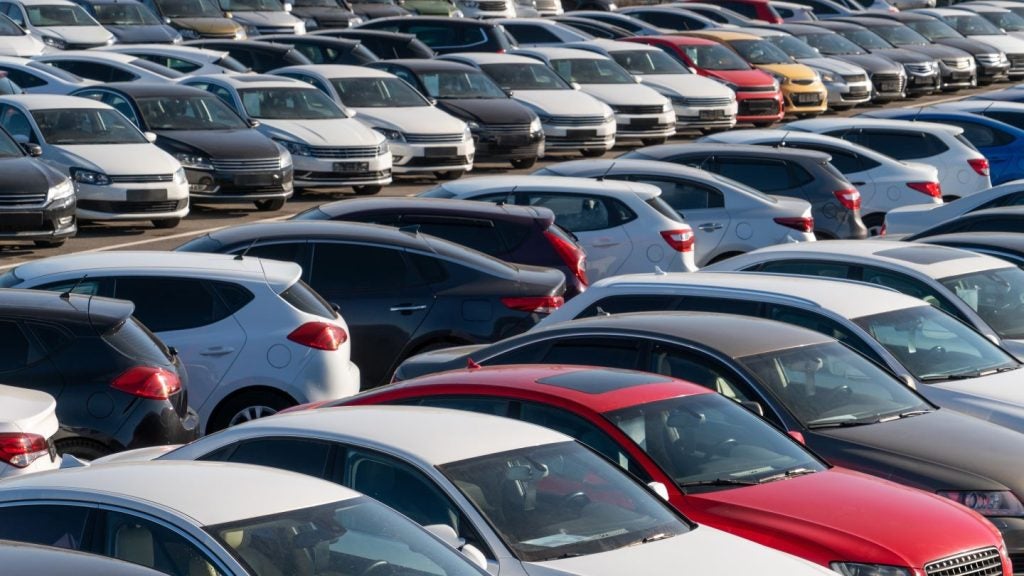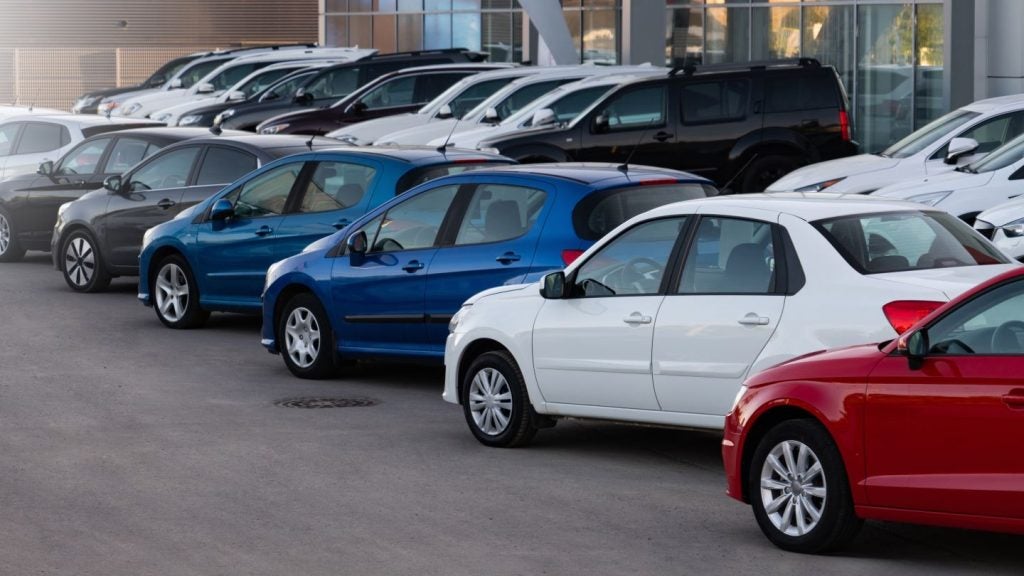Reports of the death of LPG as a viable fuel choice are perhaps
exaggerated, finds Antonio
Fabrizio.
The decision of a UK leasing company to
start providing liquefied petroleum gas-converted vehicles has
shown that there is still some interest in a marketplace which many
fleet commentators consider a dead-end path, thanks to the more
appealing low-carbon alternatives being developed at present by car
manufacturers.
Despite this lack of support and the limited market
– with only 155,000 vehicles running on UK roads over a total car
parc in excess of 30 million units – some insist that LPG vehicles’
main advantage is not properly recognised: that they are available
“here and now”, still representing the best alternative to
polluting petrol vehicles.
But is this enough to convince the UK market which,
so far, has been reluctant to introduce LPG on a wider scale?
Against the tide
Cheshire-based Square 1 Leasing recently
launched a company, LPG Fleet Solutions, specifically to target
companies that look to LPG as a greener and cheaper solution.
Square 1 Leasing’s manager Andrew Poole says his company is looking
at LPG simply as “a niche market we decided to get into to sell
finance packages”.
How well do you really know your competitors?
Access the most comprehensive Company Profiles on the market, powered by GlobalData. Save hours of research. Gain competitive edge.

Thank you!
Your download email will arrive shortly
Not ready to buy yet? Download a free sample
We are confident about the unique quality of our Company Profiles. However, we want you to make the most beneficial decision for your business, so we offer a free sample that you can download by submitting the below form
By GlobalDataPoole says: “The clear advantage is the green
factor [LPG vehicles produce on average 20 percent less CO2 than
petrol vehicles], which particularly applies to places like London,
where you can get congestion charge exemption if you use
alternative fuels.”
LPG Fleet Solutions recently received an inquiry
from a 400-fleet strong company which has a series of contracts
with the NHS and the Ministry of Defence, Poole adds.
“This company is required to show its green
credentials, and is looking at the option of converting some, if
not all of its vehicles to LPG over a period of time.”
The introduction of LPG vehicles was encouraged by
the UK government around a decade ago, and power shift grants were
made available at that time.
The grants ran out in 2005, and many attribute this
to a government change of position, as manufacturers showed little
interest in LPG. But for Mike Chapman, head of the trade
association for the UK LPG industry, there has been no government
U-turn.
“Those grants were mainly there to kick-start the
industry and would have finished anyway. The government continues
to support LPG having guaranteed lower fuel duty for the next five
years,” Chapman says.
Chapman himself sees LPG as the “bridge to the
future”, because in his opinion it represents “the most widely
available alternative fuel”, at least until hydrogen vehicles
become economically viable, and scientists find a way of producing
hydrogen from renewable resources.
But fleet management expert Colin Tourick
disagrees, saying LPG is no longer a growth area.
“This is simply not the way that the development
has gone” in terms of alternative fuel solutions, Tourick
insists.
First, Tourick said, vehicle makers have
put their efforts into diesel engines, making them less polluting –
with the current models emitting even less carbon dioxide than LPG
vehicles.
The second reason which, according to Tourick, has
held back the wider development of LPG is that manufacturers are
now focused on electric and hybrid technology.
He said that petrol-electric [for example, hybrid]
vehicles produce “fantastic savings per mile”, and have the
advantage that “one doesn’t need to recharge the vehicle, because
it basically recharges itself” through the kinetic energy produced
and stored when the car runs on petrol.
For Tourick, this would explain the greater
interest from some manufacturers like Toyota and Honda, which he
believes will soon result in an increase in the numbers of hybrid
company cars circulating on UK roads.
Chapman, however, is keen to push forward the
agenda of the industry he represents, and thinks that there are
several reasons which mean that LPG is still attractive – even when
compared to diesel and hybrids – and he believes LPG can co-exist
alongside cleaner fuels.
He says: “If one takes purely the tailpipe
emissions, then diesel is marginally cleaner than LPG. But this
doesn’t take account of the production side, which makes LPG much
cleaner.”
Chapman stresses that diesel vehicles also emit a
lot more particulates and NOx – chemical compounds that are
particularly damaging for human health and the environment –
although newer diesel vehicles perform much better.
LPG for LCVs
As far as hybrid technology is concerned,
for Chapman the problem with it is that models are very expensive
and there is a very limited choice of vehicles currently available.
Furthermore, there is not a hybrid alternative in the case of vans.
Although only 15 out of 100 LPG vehicles are vans, for Poole the
light commercial vehicle market has actually a lot of
potential.
Chapman says: “The majority of vans are
four-cylinder vans which are quite easy to convert, whereas in the
case of cars you have all sorts of engines.”
Poole notes that his company mainly started the LPG
business because a client asked for ideas on how to convert its van
fleet.
The company therefore took the opportunity to test
the LPG market, learnt a few things about it and then decided to
stay.
So far, the highest number of requests it has
received – a moderate success, according to Poole – have been
related to the leasing of vans, minibuses and refrigerated
vehicles. The company is also looking at the possibility of
providing LPG fleets to railway maintenance companies.
Big fleets have cold feet
Larger lessors and non-specialised
contract hire companies, however, have so far been less
enthusiastic about LPG.
Marcus Puddy, head of consultancy services at
Lloyds TSB Autolease, believes there is only a “limited future” for
LPG vehicles, “because most manufacturers have stopped producing
them”.
He highlights there is also a significant cost in
converting the vehicles [the conversion itself costs between £1,400
and £1,900].
Puddy says: “Someone has to pay for that
conversion, and unless the company has the appetite to undertake it
and then reap the benefits over the next three years with the
reduction in LPG costs, I don’t think there are really benefits at
the moment.”
Lex, too, which at present is linking up with
Lloyds TSB Autolease after the merger of their parent banks, has so
far seen only a limited development for LPG vehicles.
Chris Chandler, associate director at Lex’s
in-house consultancy Lex Momentum, observes that LPG vehicles make
up less than 0.5 percent of the Lex fleet, with the majority of
clients looking at fleets of 70 vehicles or less.
He says: “As far as Lex is concerned, we basically
try and be as flexible as possible, moving with the market and
providing what our clients want from us. But on that basis, LPG is
very much a small player for us.”
Chandler explains Lex has got a lot more hybrids,
exceeding 1 percent of its fleet, although over 80 percent of
vehicles are diesel.
He adds: “Our clients are getting very focused on
the environment, reducing emissions and costs. But we are not so
much seeing our clients striving for alternative fuels as we are
seeing them looking for the best breed of current technologies like
ultra-low emission diesel.”
For Chandler, the lack of interest also comes from
the fact that with manufacturers no longer looking into LPG, the
only way to have LPG is through a conversion, which brings the
significant disadvantage that the vehicle is not covered by the
manufacturer’s warranty.
“As a supplier of leasing products, that makes
things a bit more complicated,” Chandler says. “You can still buy
additional warranties for the conversion, but the fact a converted
vehicle is not an original manufacturer-supplied product is another
issue that may put companies off.”
Mike Waters, director of market insight at Arval,
points to the limited re-fuelling network as one of the reasons
behind the limited success LPG has found among UK fleets.
“Generally the market decides which technologies
are to be successful and LPG is not one that has been widely
adopted,” Waters says. “This lack of demand has seen the
manufacturers concentrate on other areas so improvements have not
come and residual values have fallen.”
Remarketing benefits?
However, for Chapman, in terms of
residual values, LPG vehicles carry at least two benefits.
“Looking at vans, a significant impact on RVs is
the congestion charge exemption in London, which adds a significant
premium to LPG vehicles,” he says.
“This makes RVs strong as vans are concerned. On
cars, these are generally smaller vehicles than petrol vehicles, so
the RVs will be as strong as for any other vehicle, provided the
conversion is properly undertaken and authorised by an approved
installer,” he observes.
Also, compared to other alternative fuels, the car
leasing industry has a lot of experience in setting LPG vehicles’
RVs, while it has almost no experience in setting up values for
hybrids.
This however has not held back the adoption of
hybrids because, as Tourick notes, “their volumes started off
relatively low, so leasing companies had the opportunity to see
these cars come back and to see how they are accepted in the used
car market”.
In the end, whether or not hybrids and electric
vehicles eventually overtake conventionally-fuelled vehicles in
popularity, there is still a great deal of uncertainty around what
the “fuel of the future” will be, which does not rule out LPG.
Chapman predicts the industry will develop niches
for various types of fuels, as long as they are environmentally
friendly – until a time in the not-too-distant future when hydrogen
vehicles become mainstream, with water vapour the only emission
from their exhaust pipes.







